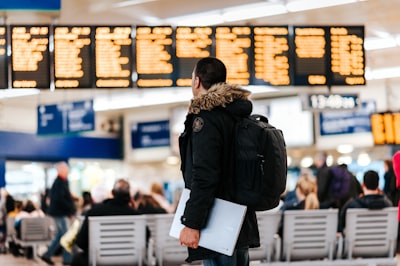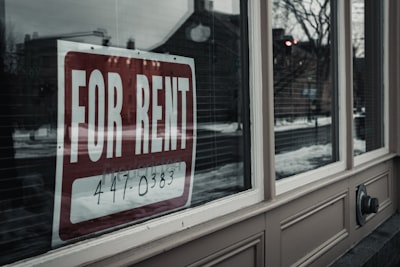Relocation Guide: 7 Things to Know Before Planning your Move to the UK
Moving to a new country can be compared to two sides of a coin.
On one hand, you are probably thrilled about the prospect of an exciting new life in a new country and likely, on a different continent. On the other hand, the idea of moving could prompt feelings of uncertainty about the unknown and anxiety about the daunting task of moving your ‘worldly possessions’ to set up in a whole new country.
Photo by Susan Q Yin on Unsplash
Whether you are moving for studies or work, relocation entails leaving behind a familiar life for a new one that is markedly different from everything you knew.
Our relocation guide is designed to steer you through some of the practical issues you will likely come across while settling and living in the United Kingdom. The topics covered in this article include;
- Choosing the Right Visa
- Healthcare
- Housing
- Commuting
- Banking
- Cost of Living
- Building a Social Network
Figure out the Right Visa for you
The visa requirement to move to the UK vary according to nationality and the purpose of relocation.
The most common types of visas issued by the Home Office are work and study visas. As we have earlier covered, you need to have accepted an offer of admission and secured a place in a licensed academic institution before you can apply for a UK study visa.
There are other options such as the Family visa, Global Talent visa, or the Innovator visa depending on your circumstance. Regardless, each visa type has strict conditions that must be met before you can be cleared for entry into the UK.
So, the first place to really start your preparation and get acquainted with the migration hoops is the UK government portal which provides all the updated information.
Healthcare
UK’s public-owned healthcare system, known as the National Health Service (NHS), is lauded to be one of the best medical systems in the world. Unlike other countries, taking private health insurance is not the standard practice in the UK because a lot of citizens find the NHS health cover sufficient.
As a newcomer, the Immigration Health Surcharge (IHS) paid at the time of visa application grants you access to mostly free healthcare services with other healthcare costs limited to prescribed medications, eye and dental care.
One of the first tasks to complete on arrival in the UK is the registration with the nearest GP (that is, a doctor) in order to access the NHS. You will be given a personal NHS number which you need every time you visit the GP or the hospital. Visit the NHS Choices website for more information on the NHS services.
A public healthcare system is not without its cons, and the main drawback of relying on the NHS is the long waitlists to see specialists and get non-emergency surgery. For this, you can explore private alternatives which guarantee faster access if you can afford it.
Finding Accommodation
The most tasking and time-consuming part of relocation are finding suitable accommodation and yet it’s the most crucial part of your settlement in the UK. Thankfully, you can start your accommodation search long before you arrive in the UK since many property listings are offered online on several property and aggregator sites.
There are varied types of accommodation in the UK ranging from pricey houses to budget-friendly rentals. You can rent a house, a flat, a studio apartment or opt for other less expensive options like house/flatshare and bedsitter. International students also have the option to apply to halls of residence accommodation and other affordable student housing.
Choosing where to live without the local knowledge of the area can be unnerving. However, property sites such as Gumtree, Zoopla, and Rightmove are good places to begin your search with the option to filter according to price and property type.
Setting up a UK Bank Account
If you are planning to live in the UK for a while, you would want to set up a bank account which is important for receiving your salary and paying bills. Usually, you can have a bank account set up with a traditional bank by visiting a physical bank branch or through the bank’s website. Some of the popular high street banks to choose from are HSBC, Nationwide, Barclays, Lloyds TSB, Natwest just to name a few.
Alternatively, you can open a bank account online in minutes with a digital bank such as Monzo, Revolut or Starling.
To open an account with either a traditional or digital bank, you will be required to verify your identity by providing some of these documents:
-
Valid International Passport
-
UK driving licence (full or provisional)
-
Biometric Residence Permit (BRP)
-
EU/EEA ID card
To show proof of your UK address, some of the commonly requested documents are:
-
Utility bill with current address
-
Council tax bill with current address
-
Tenancy agreement
The requirements vary from bank to bank so it’s important to check out the terms of your preferred bank.
Cost of living
Considering the cost of getting the visa, the Immigration Health Surcharge (IHS) and other expenses, relocating to the UK is expensive. When you arrive, you should assess the cost of living so you can budget properly for the first months of setting up your life in the UK. Some of the expenses you should plan for include;
- Rent and initial deposit
- Utility bills
- Council tax
- Feeding costs
- Transportation costs
- Other costs
The cost of living in the UK depends on where you settle. Living in London costs a lot more than any of the other regions so you can expect to pay significantly more for services and other expenses if you are settling in London.
Commuting in the UK
If you are not driving in the UK, the country has a well-developed transportation system that includes great flight connections, a wide-ranging train network, intercity and international coaches, regular bus services operating in every town and as well as taxis.
The train transport network connects most cities and towns. Several big cities like London, Liverpool, Glasgow, Tyne and Wear also have an underground rail system (also known as “the Tube”). Particularly in London, getting an Oyster card or a travel card will make your daily journey easier.
In addition, the transport system has apps by the National Rail UK and Trainline you can use to track the live schedule of trains and buses. If you regularly use the train service, you can save up to 33% on travel fares by using a railcard.
Cycling is also a common way to get around so, several UK cities provide cycle hire schemes. However, if plan to drive in the UK, you will need a valid driving licence, car insurance and you are required to register your vehicle.
Building a Social Network
A crucial part of adjusting to a new place is building a new social network. To avoid homesickness and loneliness, most newcomers usually find other internationals from their home country. While this is great, it's best not to allow that to impede you from fully immersing and acclimatising to the UK culture. So, we recommend that you build a mixed social network that will help you integrate better.
If you have relocated for studies, then you have an opportunity to make friends among your schoolmates, and flatmates. We recommend joining the school’s extracurricular club or simply meeting people the old-fashioned way – going out to social functions, coffee shops and parks.
Likewise, if you moved to work, you would have to make extra effort to make new friends outside your work circle. You can start building a network by obtaining a gym membership, joining a local group where you can meet people with similar interests as you or joining an online forum. Recreating a social network in a new country that is similar to the one you have back at home will go a long way in helping you acclimatise to your new place.
To conclude what happens to be our lengthiest article yet, moving to the UK offers a lot of opportunities and having the right information is key to a smooth settlement. While this article merely scratches the surface of what you need to know about living in the UK, we trust our article to give you a head start.
If you are looking for a place with centralised resources and reliable information about transiting to life in the UK, you should consider signing up for our waitlist to be among the first to access our all-in-one relocation platform.
To connect with other new relocators with shared experience in the UK, you can start off by joining Maze UK telegram community, we would sure love to have you in our forum.
Maze provides an end-to-end platform that disrupts the traditional relocation model.
We connect people relocating with service providers, reduce cost and enable the personalization of customer journeys to the UK.
Follow us on Instagram, Twitter, Facebook and LinkedIn, or Contact us with your relocation enquiries.


